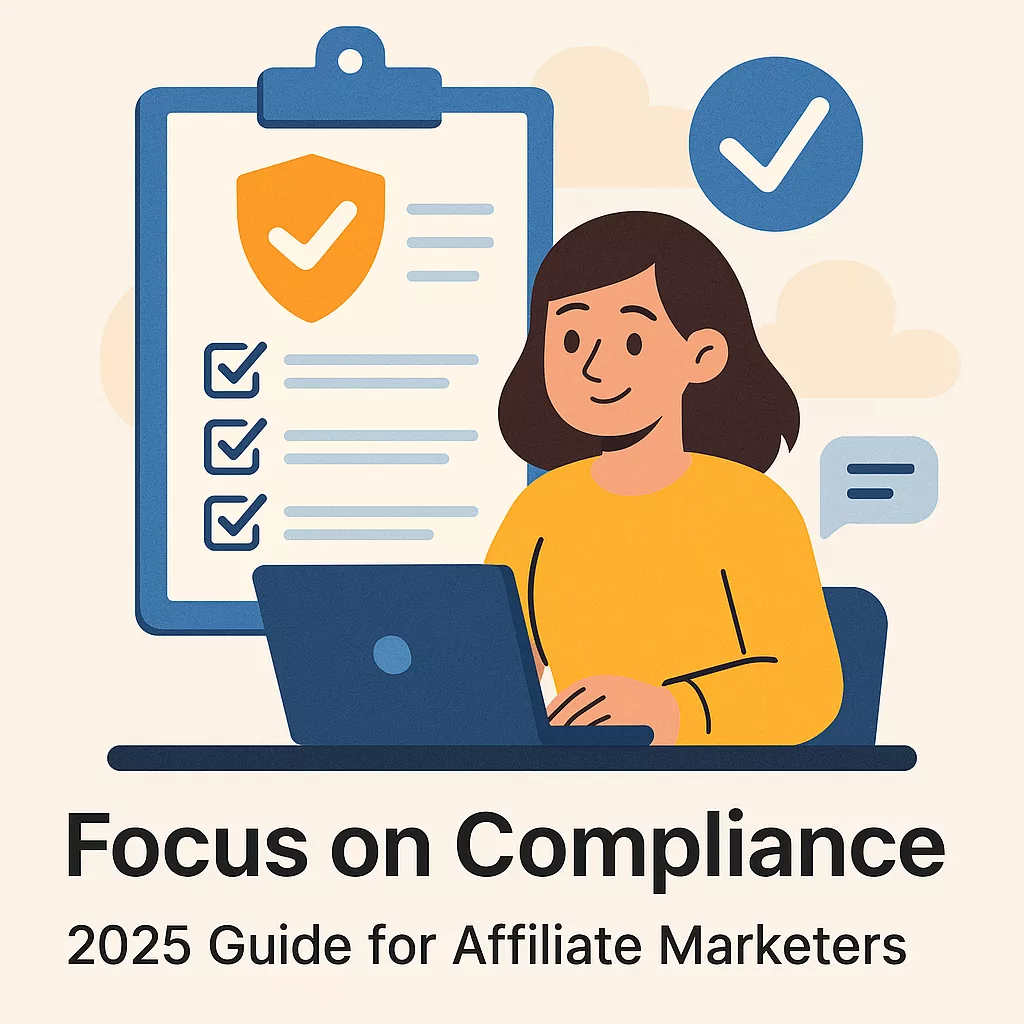
Affiliate marketing is still one of the most beginner-friendly ways to earn online — but in 2025, compliance is no longer optional. With stricter guidelines from regulators, advertisers, and platforms like Google and Amazon, staying compliant is essential if you want to protect your reputation and earnings.
The good news? Compliance doesn’t have to be complicated. If you understand a few core principles — and apply them consistently — you can stay safe while building a long-term, profitable affiliate business.
Let’s walk through exactly what compliance means, what’s changed in 2025, and how you can stay on the right side of the rules.
Why Affiliate Compliance Matters in 2025
Affiliate marketers are now under more scrutiny than ever:
- Governments and regulators like the FTC and ACCC are cracking down on non-disclosure and deceptive marketing.
- Search engines like Google prioritize transparency, EEAT (Expertise, Experience, Authority, Trust), and user trust.
- Affiliate platforms (including Amazon Associates, ShareASale, and CJ) now include stricter compliance terms in their program agreements.
Failing to comply can result in:
- Account suspensions
- Commission loss
- Legal consequences
- Damaged brand trust
6 Compliance Essentials Every Affiliate Needs to Know
- Always Include Clear Disclosures
Let your readers know when a link may result in a commission. Use plain language like:
“This post contains affiliate links, which means we may earn a commission if you click and purchase — at no extra cost to you.”
→ Read our full Affiliate Disclosure Guide - Be Transparent About Your Recommendations
Don’t pretend to be an impartial reviewer if you have an incentive. Trust matters — and honest reviews perform better long-term.
→ Explore how to build trust in affiliate marketing - Understand Program-Specific Policies
Amazon, for example, doesn’t allow link cloaking or price quoting. Check your affiliate platform’s rules regularly — they do change. - Avoid Misleading Claims
Don’t promise guaranteed income, unrealistic product outcomes, or exaggerated benefits. Use disclaimers where necessary. - Use Proper Tracking & Attribution Tools
If you’re collecting data for affiliate tracking, cookie use, or personalization, you may need to inform users under GDPR or CCPA rules.
→ See how to track affiliate performance the right way - Stay Informed as Guidelines Evolve
Compliance isn’t a one-time task. Make it part of your ongoing affiliate marketing education.
→ Stay ahead with 2025 affiliate marketing trends
Choosing affiliate programs with compliance in mind starts well before you promote anything. Not all programs support transparent disclosures, long-term trust, or ethical promotion — and that mismatch can quietly undermine your content and credibility. I break down how to evaluate affiliate programs properly in How to Choose the Right Affiliate Program in 2025, including what to look for, what to avoid, and how to align your choices with both compliance requirements and your audience’s expectations.
💡 Want to Start on the Right Foot?
Start with a platform that builds compliance into your training.
👉 Join Wealthy Affiliate – beginner-friendly, transparent, and trusted since 2005.
Final Thoughts
In 2025, compliance is no longer something you can ignore — but it doesn’t need to be intimidating. Think of it as part of building trust with your readers and setting up a sustainable affiliate business.
Build with transparency, disclose clearly, and align with your audience’s best interests. That’s not just good ethics — it’s good business.
